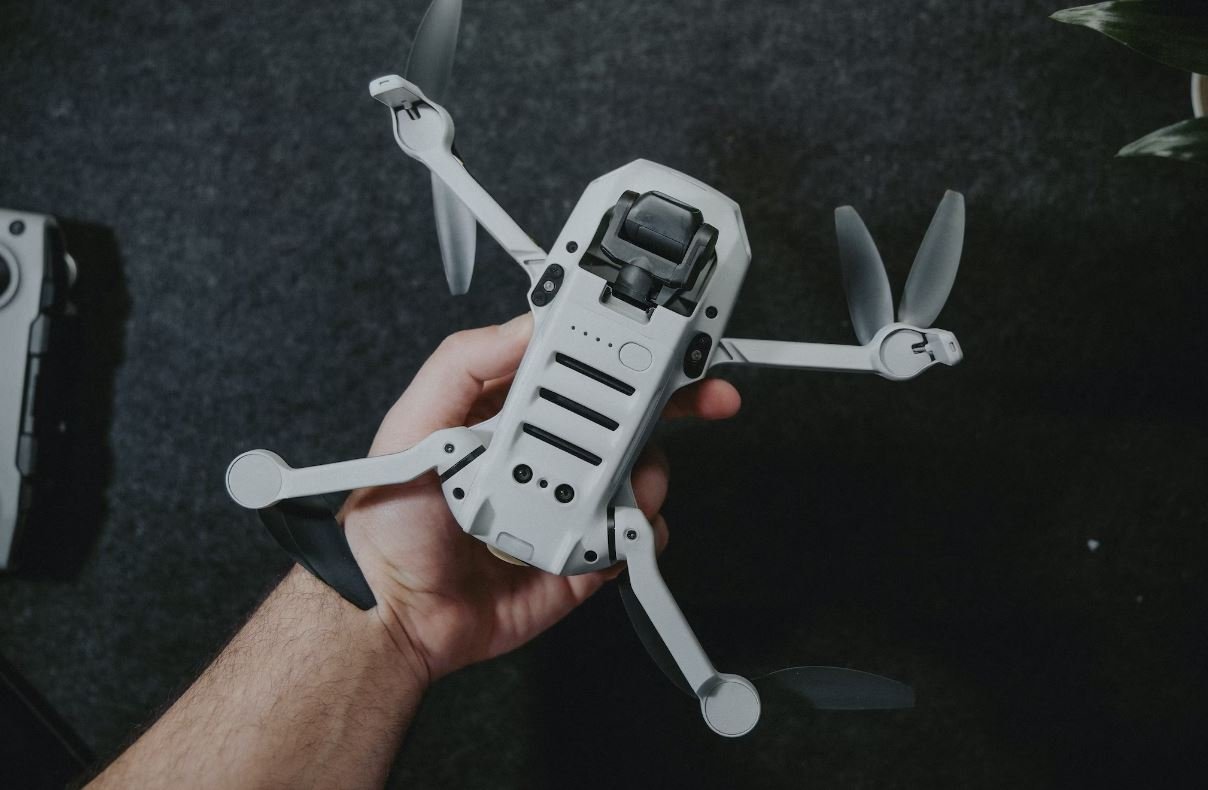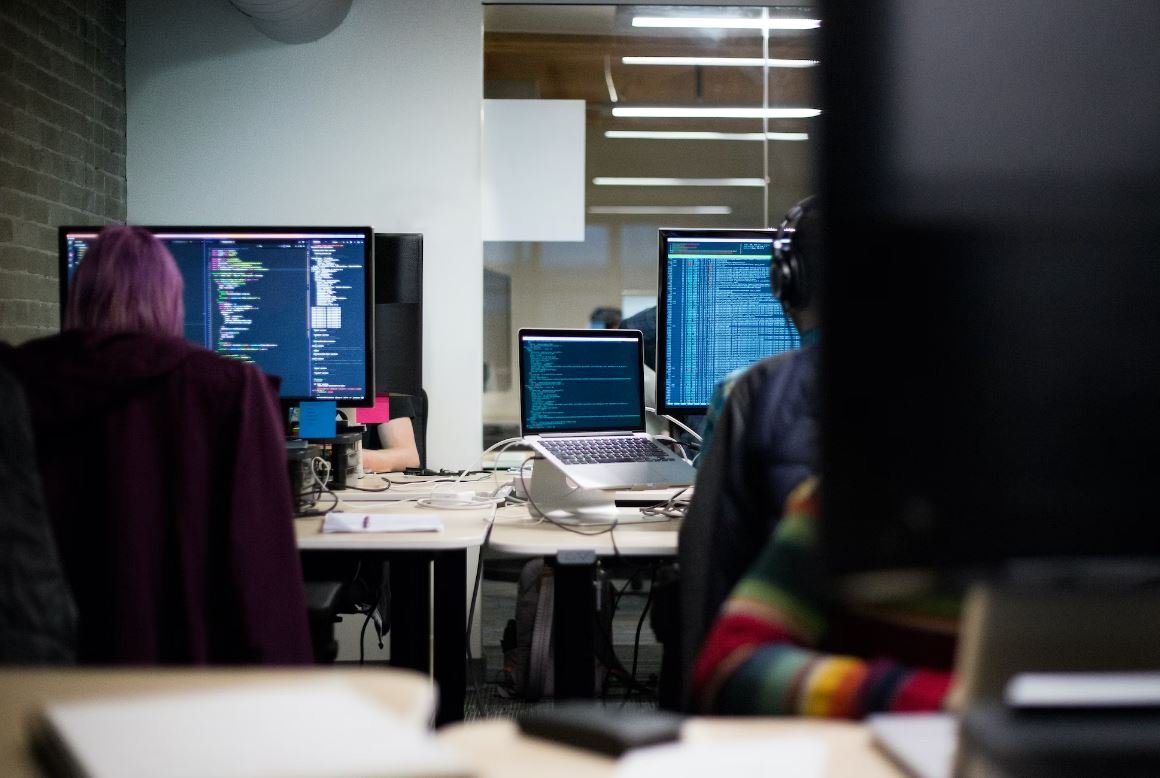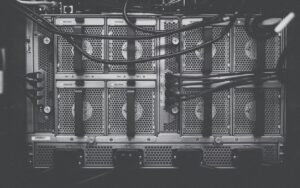Who Owns Artificial Intelligence
Artificial Intelligence (AI) has emerged as a powerful technology that is transforming various industries. But with this rapid advancement, questions arise regarding the ownership of AI. In this article, we will explore the complex landscape of AI ownership, highlighting key players and discussing their roles in shaping the future of AI.
Key Takeaways
- Artificial Intelligence (AI) ownership is a complex issue with multiple stakeholders.
- Companies like Google, Microsoft, and Facebook are among the major players in AI development.
- Individual researchers and academics also play a significant role in advancing AI technology.
- Regulatory frameworks will be crucial in determining ownership rights and responsibilities.
**Artificial Intelligence ownership** can be attributed to various entities, including **major tech companies**, **individual researchers and developers**, **governments**, and **open-source communities**. Major tech companies such as **Google**, **Microsoft**, and **Facebook** have invested heavily in AI research and development, giving them a significant stake in AI ownership. These companies develop cutting-edge AI technologies and often own the intellectual property rights associated with them.
*Researchers and developers* working in academia or as individuals also contribute to AI technology. They often publish their findings and release open-source AI frameworks that fuel innovation in the field. This collaborative approach enables knowledge sharing and promotes a diverse AI ecosystem where ownership is spread among numerous contributors.
On the other hand, *governments* also have a role in AI ownership. They may own developed AI technologies directly or indirectly through research funding. Governments often exert control over AI through regulations, licensing, and policies, shaping the direction and use of AI technology within their respective jurisdictions.
Ownership Challenges and Considerations
The question of **AI ownership** raises several **challenges and considerations**:
- Intellectual Property (IP) Rights: Companies investing in AI development often seek to protect their IP rights through patents, copyrights, and trade secrets.
- Data Ownership: AI heavily relies on data for training and improving algorithms. Data ownership and access rights can be complex, especially for AI systems trained on sensitive or proprietary data.
- Ethics and Responsibility: As AI becomes more capable and autonomous, questions regarding ethical use, accountability, and liability arise. Determining responsibility for AI’s actions can be challenging.
- Monopolistic Practices: The concentration of AI ownership in the hands of a few companies may lead to monopolistic practices, limiting competition and hindering innovation.
- Global Cooperation: AI’s global nature necessitates international collaboration and standardization efforts to address ownership, regulation, and ethical concerns on a global scale.
Ownership Examples: Tech Companies and Governments
Let’s take a closer look at **AI ownership examples**:
| Company | _AI Specialization_ | Patents (2019) |
|---|---|---|
| Natural Language Processing, Computer Vision | 3,213 | |
| Microsoft | Speech Recognition, Machine Learning | 2,907 |
| IBM | Cognitive Computing, Deep Learning | 2,831 |
It is also essential to consider **government involvement** in AI ownership. For example, the **Chinese government** has made significant investments in AI, with the aim of becoming a world leader in AI technology by 2030. Through state-led initiatives and funding, the Chinese government actively participates in AI ownership and regulation.
The Future of AI Ownership
AI ownership is a dynamic and evolving landscape. As technology continues to advance, new challenges and opportunities will emerge. To ensure a fair and beneficial AI ecosystem, it is crucial to establish **clear regulations and guidelines** that address ownership rights, ethical considerations, and the responsible development and deployment of AI.
*AI ownership will continue to shape the future of technology*, with diverse stakeholders playing a role in steering its path. Collaboration between industry, academia, governments, and communities will be vital in harnessing AI’s potential while mitigating potential risks.

Common Misconceptions
1. AI is owned by big corporations only
One common misconception about artificial intelligence (AI) is that it is exclusively owned and controlled by large corporations. However, this is not entirely true. While big tech companies like Google, Microsoft, and Amazon have made significant advancements in AI research and development, AI is also being developed and utilized by smaller organizations, startups, and even individual researchers.
- Many startups are actively working on AI technology
- AI is accessible to individual programmers and researchers
- Universities and research institutions contribute to AI advancements
2. AI will replace human jobs entirely
There is a misconception that AI will completely replace human jobs, leading to mass unemployment. While AI has the potential to automate certain tasks and roles, it is unlikely to completely replace human workers. Instead, AI is more likely to augment and enhance human capabilities, enabling professionals to focus on higher-value work and leaving repetitive and mundane tasks to AI systems.
- AI can help streamline workflows and improve efficiency
- Human creativity and emotional intelligence are hard to replicate
- New job opportunities may emerge with the integration of AI
3. AI is capable of independent decision-making
Another misconception is that AI systems have the ability to make completely autonomous decisions without human intervention. While AI systems can be trained to make decisions based on patterns and data analysis, they are ultimately programmed by humans and lack true consciousness or independent decision-making capabilities.
- Human oversight and supervision are necessary when using AI
- AI systems require human input for training and refining their algorithms
- The ethical and legal responsibility lies with humans, not AI
4. All AI applications are intelligent and sophisticated
Not all AI applications are intelligent and sophisticated to the same extent. AI is a broad field that encompasses a range of technologies, from simple rule-based systems to advanced machine learning algorithms. Many AI systems in use today are specifically designed to perform narrow and well-defined tasks, and they may not possess the level of general intelligence or adaptability that is often associated with AI.
- AI applications can vary in complexity and capabilities
- Some AI systems are limited to specific domains or tasks
- AI development is an ongoing process with room for improvement
5. AI is always a black-box that cannot be understood
While some AI algorithms and models can be complex and difficult to interpret, it is not always the case that AI systems are incomprehensible. Researchers are increasingly working on developing techniques and tools for explaining and understanding AI decision-making processes. Explainable AI aims to make AI systems more transparent and interpretable, enabling users to gain insights into how decisions are reached.
- Efforts are being made to improve transparency in AI systems
- Explainable AI can help build trust and mitigate bias concerns
- Interpretability is an important aspect for AI adoption in critical domains

Major Companies in AI Research
These companies are leading the way in AI research and development, contributing to advancements in various fields.
| Company | Contributions |
|—————|—————————————————————————————————|
| Google | Developed DeepMind, an AI program that defeated the world champion in the ancient game of Go. |
| Amazon | Created Alexa, an intelligent virtual assistant that can perform tasks and answer questions. |
| IBM | Developed Watson, an AI system capable of analyzing vast amounts of data and providing insights. |
| Microsoft | Created Cortana, an AI-powered personal assistant integrated into Windows operating systems. |
| Facebook | Developed DeepFace, an AI system capable of facial recognition with nearly human-level accuracy. |
| Tesla | Utilizes AI in its self-driving technology, improving safety and efficiency on the roads. |
| Baidu | Developed the DeepSpeech system, which can convert speech to text with impressive accuracy. |
| NVIDIA | Manufactures GPUs specifically designed for AI processing, contributing to faster AI computations. |
| Apple | Developed Siri, an AI-powered virtual assistant used in various Apple devices. |
| OpenAI | A non-profit research organization aiming to ensure that AI benefits all of humanity. |
Impact of AI on Various Industries
AI has transformed numerous industries, bringing automation, enhanced decision-making, and cost savings.
| Industry | AI Impact |
|—————|—————————————————————————————————–|
| Healthcare | AI systems assist in diagnosing diseases, analyzing medical images, and predicting patient outcomes. |
| Manufacturing | AI robots perform complex tasks, increasing efficiency and reducing errors in the production line. |
| Finance | AI algorithms detect fraud, automate trading, and assess creditworthiness, improving financial processes. |
| Transportation| AI-powered self-driving vehicles are reshaping the future of transportation, promising safer roads. |
| Retail | AI chatbots provide personalized customer service, recommend products, and optimize inventory management. |
| Education | AI platforms enable personalized learning experiences, adapt curriculum, and provide educational support. |
| Entertainment | AI algorithms are used for content recommendations, personalized advertising, and even scriptwriting. |
| Agriculture | AI systems optimize crop production, monitor soil conditions, and minimize the use of pesticides. |
| Energy | AI helps optimize power usage, reduce waste, and improve overall energy efficiency. |
| Marketing | AI algorithms analyze consumer behavior, target specific audiences, and automate campaign optimization. |
Gender Distribution in AI-related Careers
The representation of gender in AI-related careers varies significantly across different roles.
| AI Career | Percentage of Men | Percentage of Women |
|———————-|——————|——————–|
| AI Researcher | 73% | 27% |
| Data Scientist | 68% | 32% |
| Robotics Engineer | 85% | 15% |
| AI Ethics Specialist | 64% | 36% |
| Machine Learning Engineer | 67% | 33% |
| AI Product Manager | 62% | 38% |
| Natural Language Processing Engineer | 71% | 29% |
| Computer Vision Engineer | 82% | 18% |
| AI Software Developer | 69% | 31% |
| AI Business Consultant | 66% | 34% |
Top Countries Investing in AI
These countries understand the importance of AI and invest significantly in its research and development.
| Country | AI Investments (in billions of USD) |
|—————-|————————————-|
| United States | 18.2 |
| China | 12.7 |
| Germany | 3.3 |
| United Kingdom | 2.9 |
| Canada | 2.2 |
| France | 1.9 |
| Japan | 1.7 |
| South Korea | 1.4 |
| Israel | 1.2 |
| Sweden | 1.1 |
The Future Impact of AI on Jobs
As AI continues to advance, its impact on the job market is a topic of great interest and concern.
| Job Type | Probability of Automation (0-100%) |
|—————-|———————————–|
| Telemarketers | 99 |
| Data Entry Keyers | 98 |
| Accounting and Auditing Clerks | 94 |
| Bookkeeping, Accounting, and Auditing Clerks | 94 |
| Receptionists and Information Clerks | 94 |
| Tellers | 93 |
| Tax Preparers | 91 |
| Compensation and Benefits Managers | 90 |
| Couriers and Messengers | 89 |
| Financial Analysts | 87 |
AI in Pop Culture
Artificial intelligence has captivated popular culture through books, films, and television shows.
| Book | Author | Year Published |
|——————|—————–|—————-|
| “Neuromancer” | William Gibson | 1984 |
| “I, Robot” | Isaac Asimov | 1950 |
| “Do Androids Dream of Electric Sheep?” | Philip K. Dick | 1968 |
| “The Terminator” | Cameron/Orth | 1984 |
| “2001: A Space Odyssey” | Arthur C. Clarke | 1968 |
| “Blade Runner” | Philip K. Dick | 1968 |
| “Ex Machina” | Alex Garland | 2014 |
| “Westworld” | Michael Crichton| 1973 |
| “The Matrix” | Wachowski Sisters| 1999 |
| “Her” | Spike Jonze | 2013 |
AI and Ethics
The ethical implications of AI are a subject of significant debate and concern.
| Ethical Issue | Description |
|————————————|———————————————————————————————————————————————————|
| Privacy Concerns | AI systems that process vast amounts of personal data raise concerns about data privacy and potential misuse. |
| Bias in AI Algorithms | Algorithms can inherit biases from training data, leading to discriminatory outcomes in tasks like hiring or loan approval. |
| Job Displacement and Unemployment | AI’s potential to automate tasks may lead to job losses and unemployment, raising concerns about the future of work. |
| Autonomous Weapons | The development of AI-powered weapons raises concerns about the ethical implications of delegating lethal decisions to machines. |
| Deepfakes | AI-powered deepfake technology can create highly realistic manipulated media, contributing to the spread of misinformation and compromising trust. |
| Algorithmic Accountability | Ensuring transparency and accountability when making decisions based on AI algorithms is crucial to prevent biases and discrimination. |
| Superintelligence | The potential emergence of superintelligent AI raises profound ethical questions regarding its control, intentions, and impact on humanity. |
| Data Breaches and Security Risks | AI systems require robust security measures to prevent malicious actors from exploiting vulnerabilities and causing significant harm. |
AI Applications in Everyday Life
AI is integrated into various aspects of our daily lives, enhancing convenience and efficiency.
| Application | Description |
|————————–|——————————————————————————————–|
| Virtual Assistants | AI-powered assistants like Siri, Alexa, and Google Assistant help with daily tasks and queries. |
| Recommendation Systems | Online platforms use AI algorithms to personalize recommendations for products, movies, etc. |
| Spam Filters | AI-based spam filters identify and block unwanted emails, enhancing email user experience. |
| Voice Recognition | Smartphone voice assistants and smart speakers use AI to understand and respond to commands. |
| Social Media Algorithms | AI algorithms power content curation, personalized ads, and target specific audiences. |
| Navigation Systems | AI systems assist in route optimization, real-time traffic updates, and intelligent suggestions. |
| Virtual Customer Support | AI chatbots provide instantaneous customer support, answering queries, and resolving issues. |
| Language Translation | AI translation systems like Google Translate bridge language barriers, enabling global communication. |
| Content Moderation | AI algorithms analyze and filter user-generated content to moderate and enforce platform guidelines. |
| Image and Video Recognition | AI technology enables automatic tagging, searching, and identification of objects and faces. |
AI Startups to Watch
These innovative startups are shaping the future of AI and pushing boundaries.
| Startup | Description |
|———————-|—————————————————————————————————————-|
| OpenAI | Focused on developing safe and beneficial AI to ensure it benefits all of humanity. |
| DeepMind | Utilizing AI for breakthroughs in healthcare, gaming, and other industries. |
| SenseTime | Leading AI company developing facial recognition technology and computer vision solutions. |
| UiPath | Providing AI-powered robotic process automation (RPA) software for businesses. |
| Graphcore | Designing AI chips and systems to accelerate and optimize AI computation. |
| DataRobot | Provides an automated machine learning platform to build and deploy AI models efficiently. |
| Cerebras Systems | Developing the world’s largest AI processor to handle complex, deep learning models. |
| Vicarious | Focused on AI research to create intelligent robots capable of learning and performing tasks like humans. |
| Element AI | Offers a collaborative AI development platform to build and deploy enterprise-grade AI solutions. |
| Zebra Medical Vision | Utilizing AI to analyze medical images and provide insights to healthcare professionals. |
The Future of AI
As AI continues to advance, it is clear that it will play an increasingly prominent role in shaping our lives and transforming various industries. From healthcare to transportation, AI is revolutionizing how we tackle complex problems, make decisions, and interact with technology. However, with this rapid progress, ethical considerations, data privacy, and transparency in algorithms must be addressed to mitigate potential risks. By leveraging the potential of AI responsibly and collaboratively, we can harness its power to drive positive change and create a more efficient, innovative, and equitable future.
Frequently Asked Questions
What is artificial intelligence?
Artificial intelligence refers to the development of computer systems capable of performing tasks that would typically require human intelligence, such as speech recognition, problem-solving, and learning.
Who owns artificial intelligence?
As of now, there is no specific individual or entity that can claim ownership of artificial intelligence as a whole. AI is a rapidly growing field with contributions from various researchers, organizations, and governments worldwide.
Are there any laws or regulations regarding AI ownership?
Different countries may have different laws and regulations pertaining to AI ownership and intellectual property. The legal frameworks surrounding AI ownership are still evolving and differ from jurisdiction to jurisdiction.
Can AI inventions be patented?
Yes, in many countries, AI inventions can be patented if they meet the necessary requirements, such as being novel, non-obvious, and industrially applicable. However, the specifics of AI patentability can vary depending on the jurisdiction.
How are AI ownership disputes resolved?
AI ownership disputes are typically resolved through legal proceedings, using patent and intellectual property laws as a basis. These disputes may involve multiple parties and require extensive evidence and expert testimony to determine ownership rights.
Do individuals retain ownership of AI created by them?
In most cases, individuals who create AI systems hold the ownership rights to their creations. However, there may be exceptions if the AI was developed within the scope of employment or under specific contractual agreements that transfer ownership.
Can AI itself claim ownership?
No, AI systems are creations of humans and do not possess legal personality or the capability to assert ownership rights. The ownership of AI is determined by the individuals or entities that develop or own the underlying technology.
Are there any ethical considerations regarding AI ownership?
Yes, the ownership of AI raises ethical considerations related to accountability, transparency, and potential misuse. It is important for individuals and organizations involved in AI research and development to adhere to ethical guidelines and ensure responsible use of AI technology.
What are the future implications of AI ownership?
The future implications of AI ownership are still uncertain. With the continuous advancements and widespread adoption of AI, there may be ongoing debates and discussions surrounding ownership rights, liability, and the impact of AI on society.
Where can I find more information about AI ownership?
To explore more about AI ownership, you can refer to legal resources, academic journals, and industry publications that focus on intellectual property, patent law, and AI ethics.




